Tax & Income Supports
Income support programs—including cash assistance and tax credits—help families meet their basic needs and promote economic mobility. We provide solutions to ensure that everyone has resources they need to take care of themselves and their loved ones.
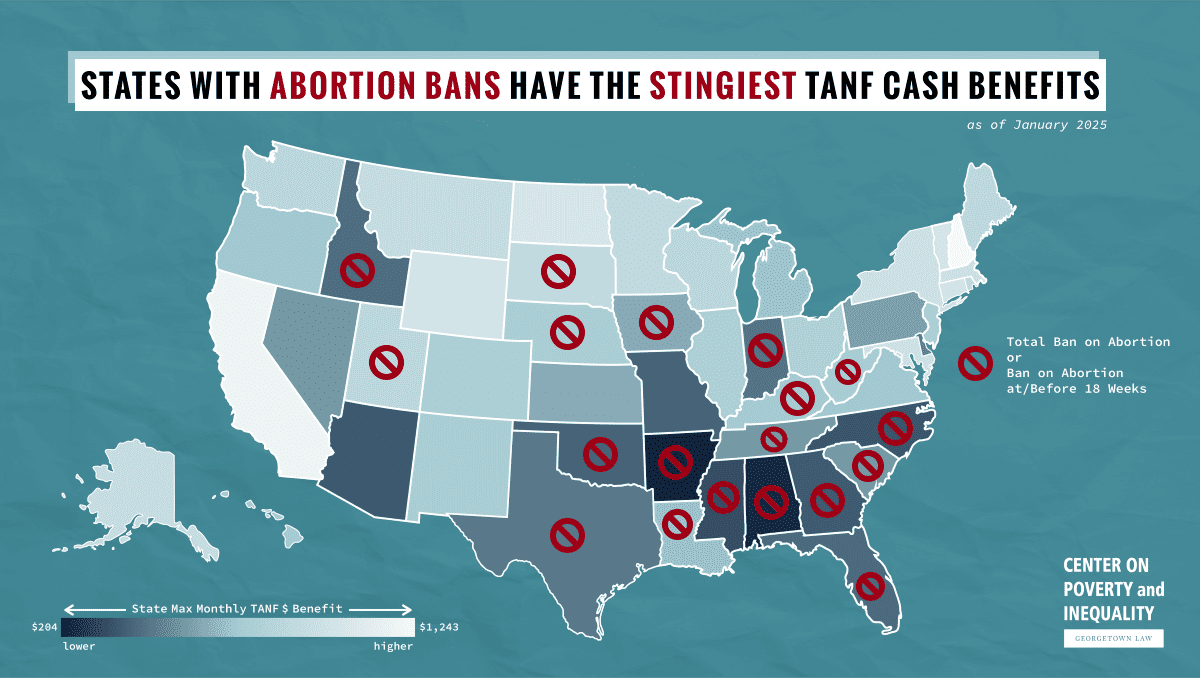
overturned nearly three years ago, ending the federal constitutional right to abortion. The consequences of lost access to this essential care have been devastating. States with abortion restrictions tend to have the stingiest public benefits supports for growing families. This map shows that 10 of the 12 states with the stingiest TANF cash benefits also have the harshest abortion restrictions.

Led by Congresswoman Chrissy Houlahan (D-PA) and Congresswoman Stephanie Bice (R-OK), the House Bipartisan Paid Family Leave Working Group’s I-PLAN proposal is a promising step. The proposal recognizes the importance of investing in state paid leave programs. Strengthening these programs is a crucial step toward building systems that provide meaningful support for working people and their families.
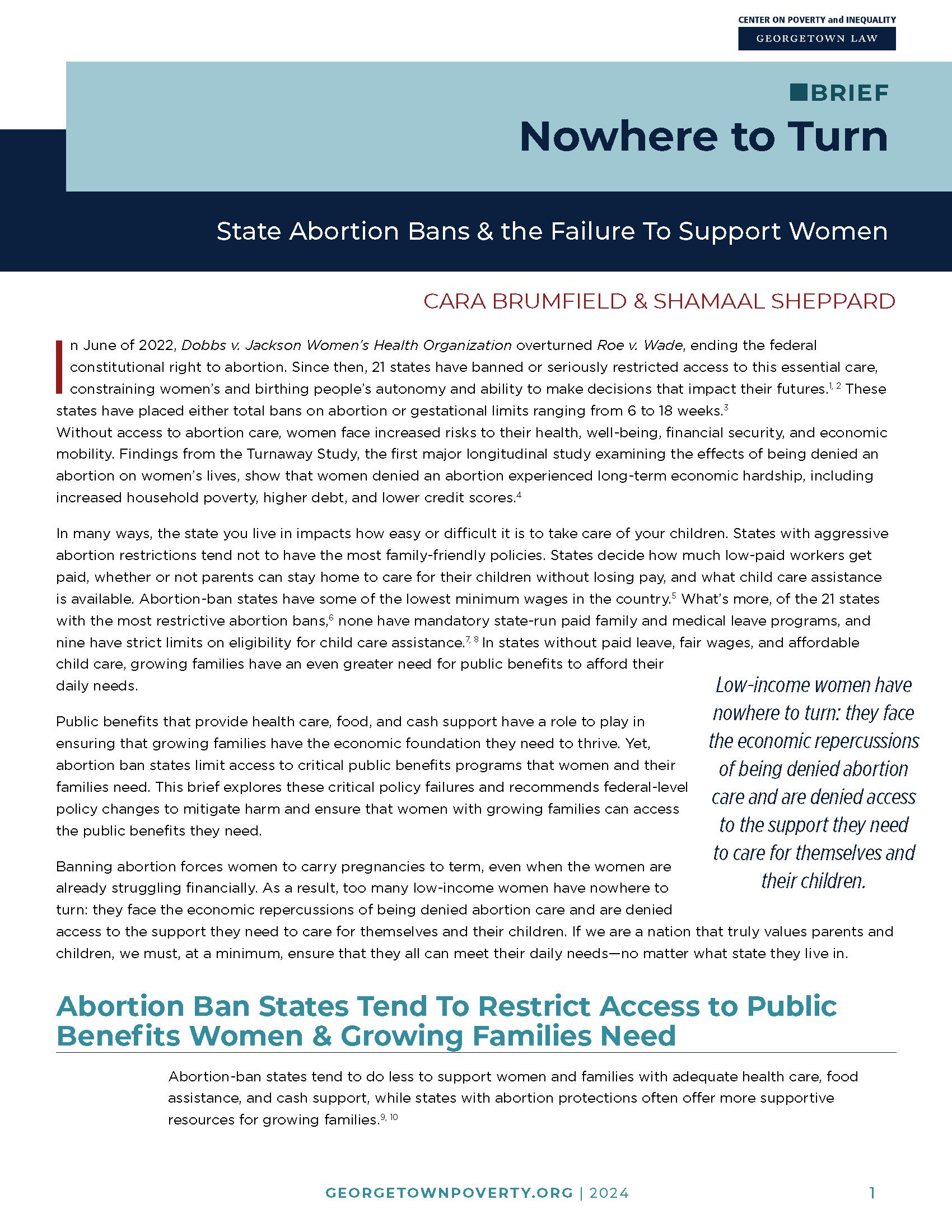
Since the overturning of Roe vs. Wade in 2022, many low-income women have nowhere to turn: they face the economic repercussions of being denied abortion care and lack access to the support they need to care for a growing family. This brief looks at how abortion bans and insufficient public benefits at the state level affect women and families. It finds that states with abortion bans often do not provide enough supportive resources for growing families, like health care, food assistance, and cash support. The brief also offers federal policy recommendations to help families meet their everyday needs—no matter what state they live in.
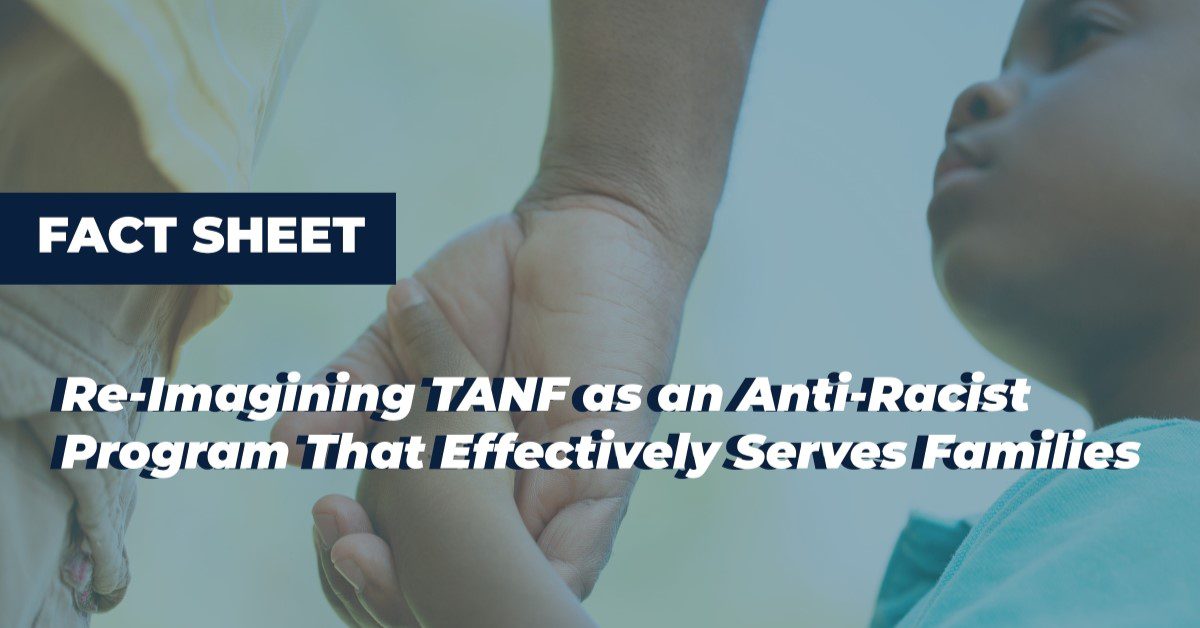
Eliminating poverty in America is within reach, and a reimagined Temporary Assistance for Needy Families (TANF) program is key to achieving it. TANF can provide critical support to low-income families, but systemic barriers—like work requirements, complex applications, and inadequate cash assistance—limit its effectiveness. This fact sheet outlines how transforming TANF to focus on direct cash support, racial and gender equity, and reducing administrative burdens can improve the economic well-being of millions of low-income families and address the deep-rooted inequalities that disproportionately affect communities of color.

The Supreme Court decision in Grants Pass v. Johnson effectively criminalizes homelessness. This decision is a cruel, counterproductive move that punishes people for experiencing poverty.
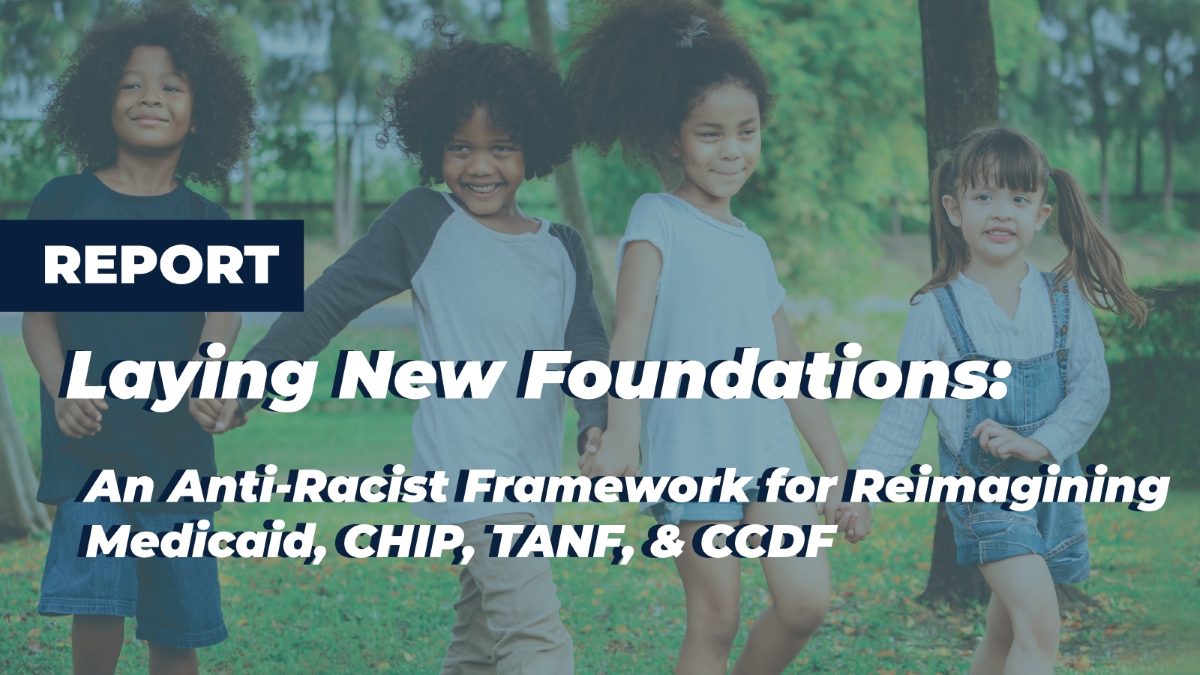
Everyone deserves the opportunity to lead a healthy, stable, and economically secure life. Many government programs aim to provide a stable foundation for all families, but fall short due to legacies of racism. This report puts forth a visionary framework with principles for anti-racist policymaking, focusing on Medicaid, the Children’s Health Insurance Program (CHIP), the Child Care and Development Fund (CCDF), and Temporary Assistance for Needy Families (TANF). It includes three spotlights from leaders in Puerto Rico, Texas, and the District of Columbia applying these principles to advance racial and economic justice in their communities.
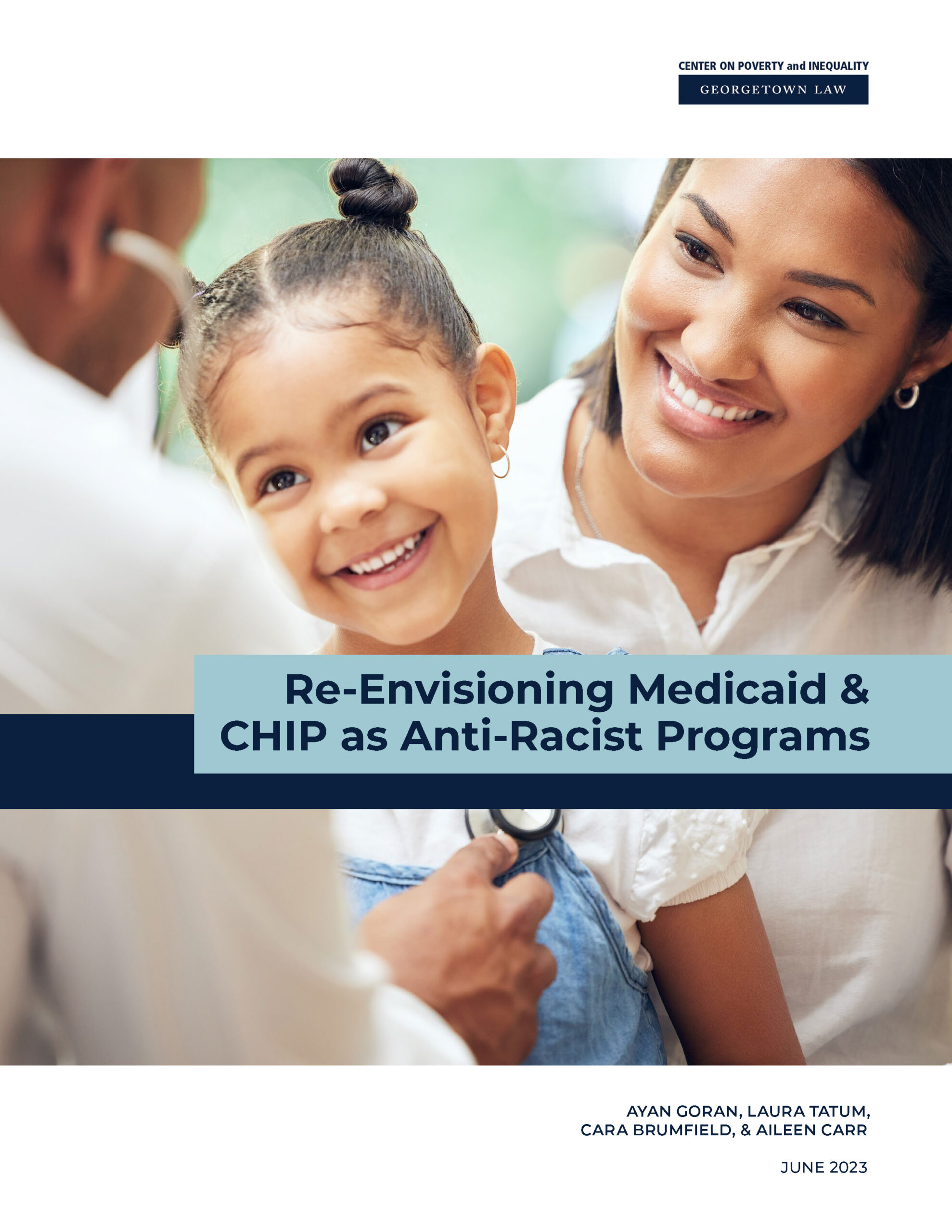
Racial and ethnic disparities in the health care system have long impeded our nation’s health and well-being. For everyone in the U.S. to achieve their full potential—and for our nation to achieve its full potential—we must ensure equitable access to high-quality health care. This report presents an anti-racist re-imagining of the Medicaid and CHIP programs that actively reckons with the racist history of health care coverage. The report offers recommendations to advance racial equity in Medicaid and CHIP. It also provides principles to guide anti-racist policy transformations that center program participants and their communities.

The latest debt ceiling agreement threatens to take away food and cash assistance from people with low incomes—especially older women—if they cannot meet harsh work reporting requirements. The latest bill would add another hurdle to accessing the Supplemental Nutrition Assistance Program (SNAP) for older Americans ages 50-54 and doubles down on existing SNAP time limits for childless adults under 50 and existing work requirements in the Temporary Assistance for Needy Families (TANF) program.

All who call the U.S. home should have the opportunity to thrive and support their families. Millions of immigrants and their families disproportionately face barriers to opportunity, and are unnecessarily excluded from public programs like CHIP, Medicaid, and the Child Tax Credit. Research shows that immigrant-inclusive public policy improves public health outcomes and reduces poverty. This blog highlights reforms needed to achieve a more equitable and prosperous society for everyone and improve the nation’s overall economic security and opportunity.
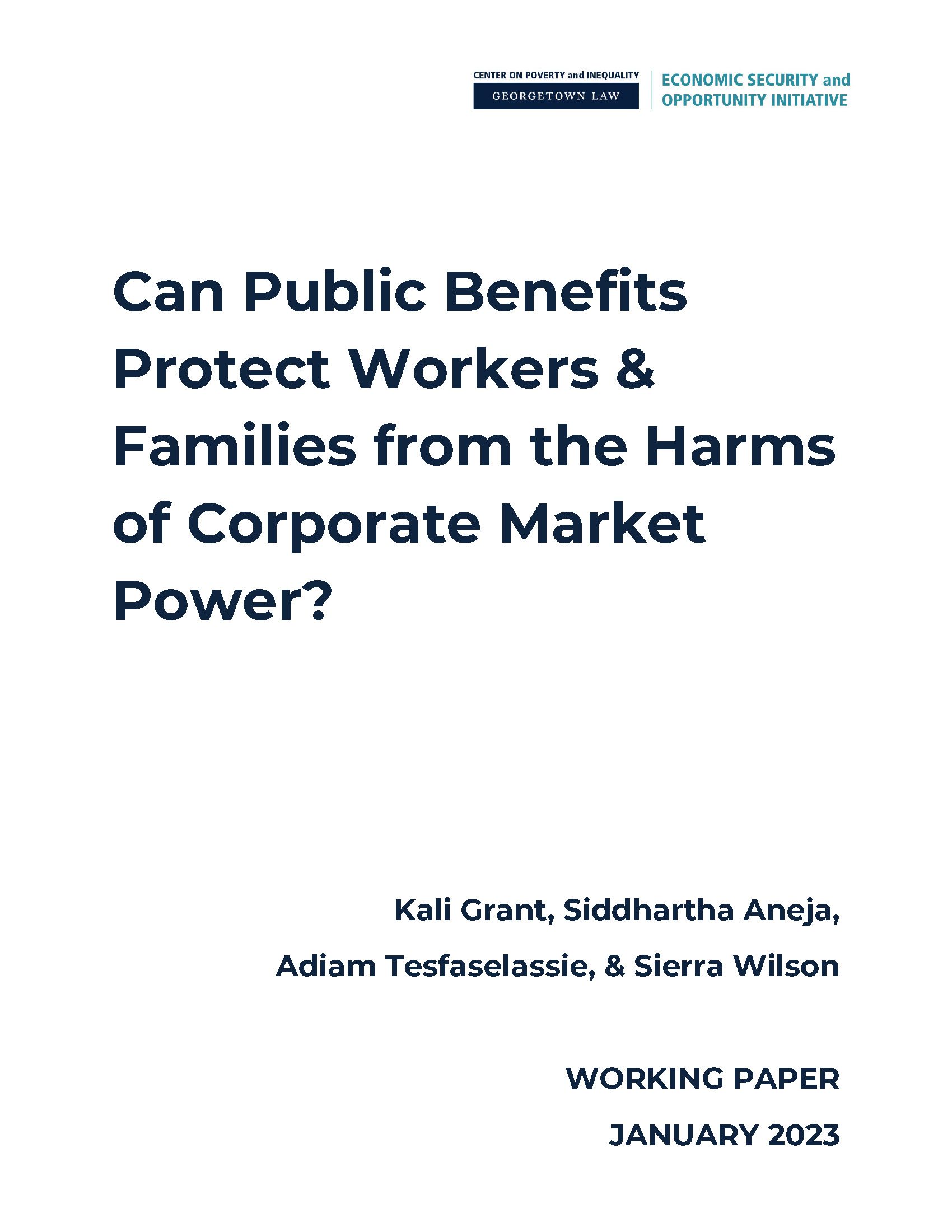
Corporate market power touches virtually every facet of American life—from health care costs and access to grocery stores to our environment and the strength of our democratic institutions. Public benefits programs, such as the Supplemental Nutrition Assistance Program (SNAP) and Medicaid, provide essential protections for workers and families from the harms of concentrated market power, including the prevalence of low-paid work. However, little attention has been paid to the complex relationships between public benefits and corporate market power. This working paper examines some of the relationships between corporate market power and public benefits and spotlights opportunities for further exploration of this emerging area of research.
